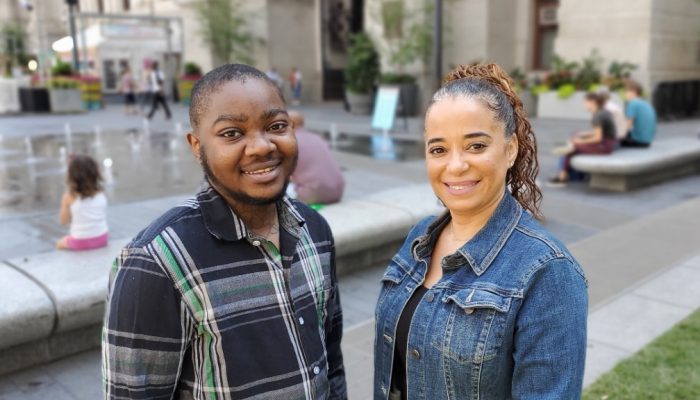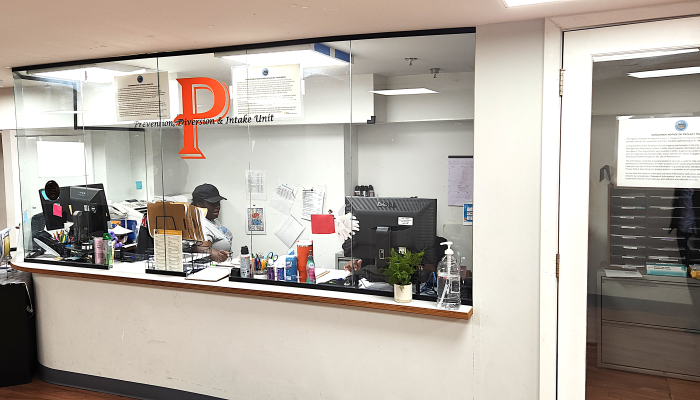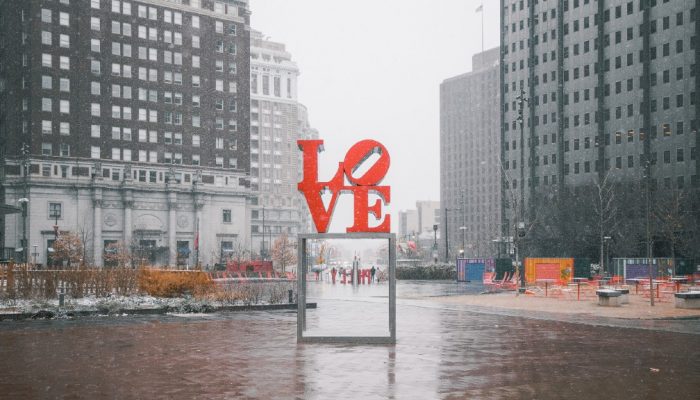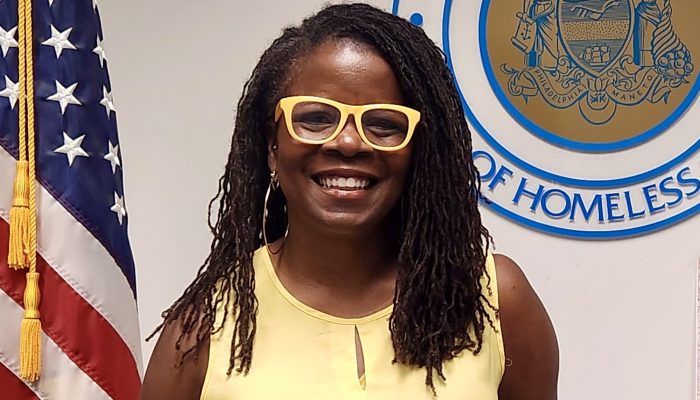The cost of childcare and transportation can keep people from getting a job. For those experiencing homelessness, the obstacles are even bigger. If you are living in a shelter, who watches your kids while you’re at work? If you don’t have a paycheck, how can you get a bus pass? More importantly, how do you move out without an income to pay the rent?
Knowing these barriers hold people back, the Office of Homeless Services created a program to make it easier for people experiencing homelessness to find, and keep, a job: Help for the Hurdles. It’s a partnership with First Step Staffing, an innovative employment organization. They hire individuals with barriers to employment and help them take the first step toward self-sufficiency. First Step is the largest nonprofit staffing agency in the US. In 2021 alone it employed over 8,000 people, putting $57 M in wages into the pockets of people who were formerly homeless, incarcerated, or in recovery.
Lashay Sparrow is a 23-year-old, single dad. He is one of 90 people who have gotten help through Help for the Hurdles. Wendolyne David is a Recruiting Workforce Specialist with First Step Staffing. We asked them how the program works and how it helps people.
Lashay, what work will you be doing and how did you hear about Help for the Hurdles?
Lashay Sparrow: I’m on my way to join PowerCorpsPHL. Before that I wasn’t working because I had my son all day. I got him into daycare through the program. In PowerCorps, basically we go around and fix up the City, do landscaping at the recreation centers, plant trees, stuff like that. We try to make Philly be a better environment for everybody. When people drive through, they will see we’re not as bad as everybody says we are.
I heard about the program at the shelter where I live with my three-year-old son. My case manager told me it could help. He gave me some basic information about the program and asked if I wanted to sign up.
What hurdle did the program help you overcome?
Lashay Sparrow: For me, mostly it was childcare. I’m not going to lie, I didn’t know what I was doing, at all. It was a little bit of a hard process to manage on my own. But basically, about one to two weeks after meeting Wendy, my son was in school, and I was starting to look for jobs. And my son enjoys going to school, he has fun every day.
The program also provides a weekly transportation pass. Say you have an interview, or you have to drop your kid off at school, the program gives you transportation pass to do those things.
Who makes the referral to start the process, and when is the last day to make them?
Wendolyne David: First, the participant meets the shelter case manager, who shares information about Help for the Hurdles and determines if the participant is eligible. The case manager makes the referral to the Office of Homeless Services. OHS then sends the referral to First Step Staffing. That’s when I contact someone like Lashay to schedule an interview. Once someone is in the program, they receive my support for three months. The last day to make referrals for childcare and transportation subsidies is August 31.
What do you like about managing the program?
Wendolyne David: Many of the participants that I’ve met really take advantage of the transportation, the childcare and job placement support. The point of Help for the Hurdles is to address immediate hurdles, get them stable. But then we start talking long-term. You know, not just a job for today, it’s a job for tomorrow too. It’s a wonderful feeling to call them and see how they’re doing. They’re like, “Ms. Wendy, I moved out! I’m getting my own place and I got a job,” and that is really, really cool.
What is the most valuable part of this experience for you, Lashay?
Lashay Sparrow: When you live in a shelter, you kind of have to fend for yourself. But being in this program, it shows you that you have someone in your corner. They’re people who ask: “What would you like to do?” They listen and then say: “okay then these are the next steps.”
It’s been good to have that support, but also hear that encouragement, to hear someone you know say “good job.” Like, you know, I got my son into school – “good job.” I started work – “good job.” Because some people like me, we go through things that make you wonder, dang, am I doing a good job? or am I doing what I need to do? Being in this program, it’s like: “This is what you need to do,” then “we’re proud of you, good job, here’s the next step.”
So, what is the next step? What do you hope for the future?
Lashay Sparrow: Next is starting work at PowerCorps and getting my housing. Hopefully I should be ready to move into my next place by the end of the month. Basically, I want to further myself and make sure that my son stays in school.
Special relief funds during the COVID-19 pandemic allowed OHS to pilot this new program. Those funds are sunsetting, so the current deadline for case managers to submit referrals is August 31, 2022. OHS will continue to seek new funding for Help for the Hurdles and other programs that help people experiencing homelessness get jobs.
Photo: Lashay Sparrow and Wendolyne David




